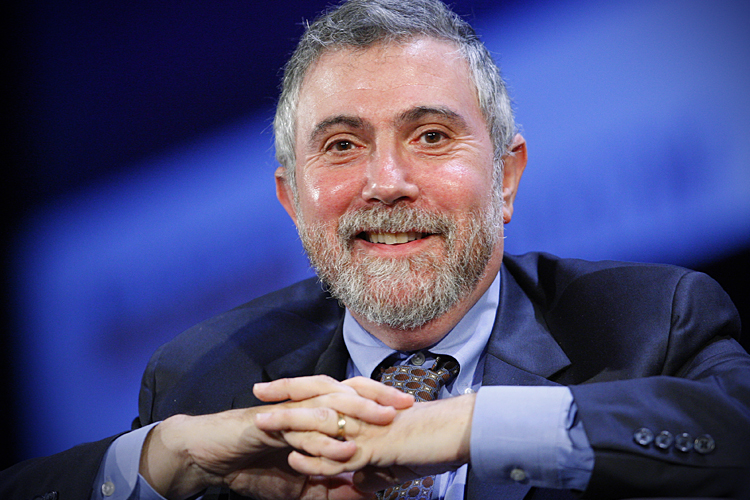Ask Americans whether they trust the federal government to solve big policy problems, and a hefty majority will tell you they don’t. But as Nobel Prize-winning economist Paul Krugman observes in his New York Times column today, the government has actually gotten it right on some of the most vexing challenges confronting the country, despite the prophecies of anti-government naysayers.
Ebola is but the most recent example, Krugman writes. While the virus continues to plague Africa, the U.S. hasn’t seen a new case in weeks, and even a casual consumer of news can hardly help noticing that the disease receives much less media attention now — and is no longer the subject of political fear-mongering.
Krugman sees a valuable lesson here. More than a public health challenge, he argues, Ebola functioned as a “political metaphor.” Conservatives seized on the outbreak to assail big government incompetence, calling for drastic measures like travel bans and heaping scorns on government experts at agencies like the Centers for Disease Control. But as Krugman points out, those experts “actually did know what they were doing” — just as the government has deftly handled other complex policy issues.
Take the Energy Department’s renewable energy loan program. Chances are that if you’ve heard of it, it’s because you’ve read about the failure of Solyndra, a renewable energy company whose failure cost the government more than half a billion dollars. Republicans pounced on Solyndra’s collapse to deride federal subsidies and crony capitalism, but they were mysteriously silent last week when the Energy Department reported that its renewable energy program has actually turned a $5 billion profit overall.
“The question is not whether the Department of Energy has made some bad loans — if it hasn’t, it’s not taking enough risks. It’s whether it has a pattern of bad loans. And the answer, it turns out, is no,” Krugman writes. Shouldn’t the right wing, being enthralled with business, understand that some investments succeed, while others don’t?
Far more than the Department of Energy’s renewable program, Obamacare has served as a right-wing boogeyman since its inception. But despite the hype, Krugman contends, healthcare reform is meeting with “remarkably good” results. Far fewer Americans are uninsured, premiums are increasing at a rate slower than the historical average, and most people are satisfied with their health plans.
Finally, Krugman notes, the federal budget deficit has plunged, even though conservatives and Very Serious centrists have warned for years that the U.S. would soon drown in a sea of red ink absent radical measures, like gutting social insurance programs.
What lessons can we draw from these government successes? Here’s Krugman:
The moral of these stories is not that the government is always right and always succeeds. Of course there are bad decisions and bad programs. But modern American political discourse is dominated by cheap cynicism about public policy, a free-floating contempt for any and all efforts to improve our lives. And this cheap cynicism is completely unjustified. It’s true that government-hating politicians can sometimes turn their predictions of failure into self-fulfilling prophecies, but when leaders want to make government work, they can.
And let’s be clear: The government policies we’re talking about here are hugely important. We need serious public health policy, not fear-mongering, to contain infectious disease. We need government action to promote renewable energy and fight climate change. Government programs are the only realistic answer for tens of millions of Americans who would otherwise be denied essential health care.

